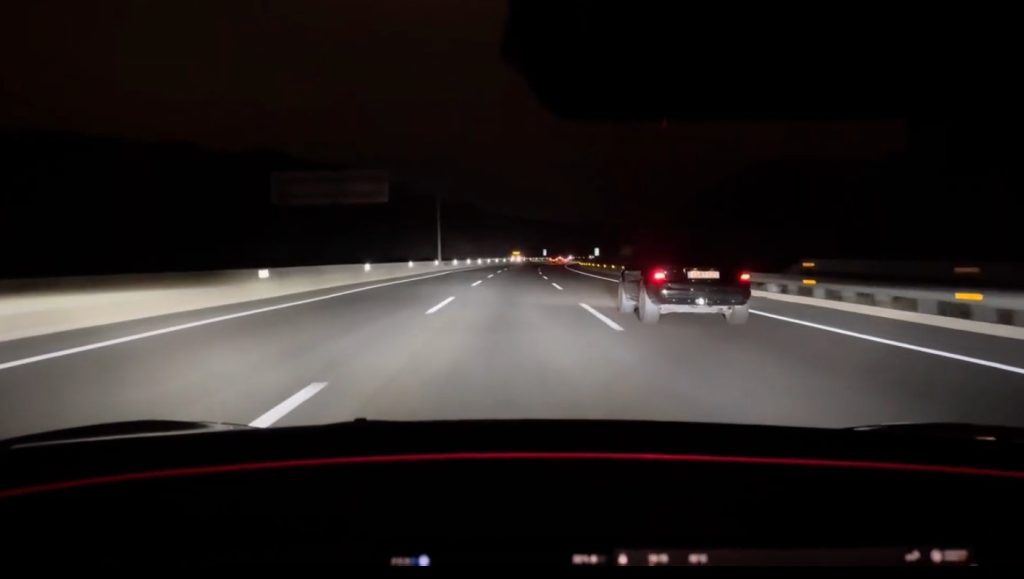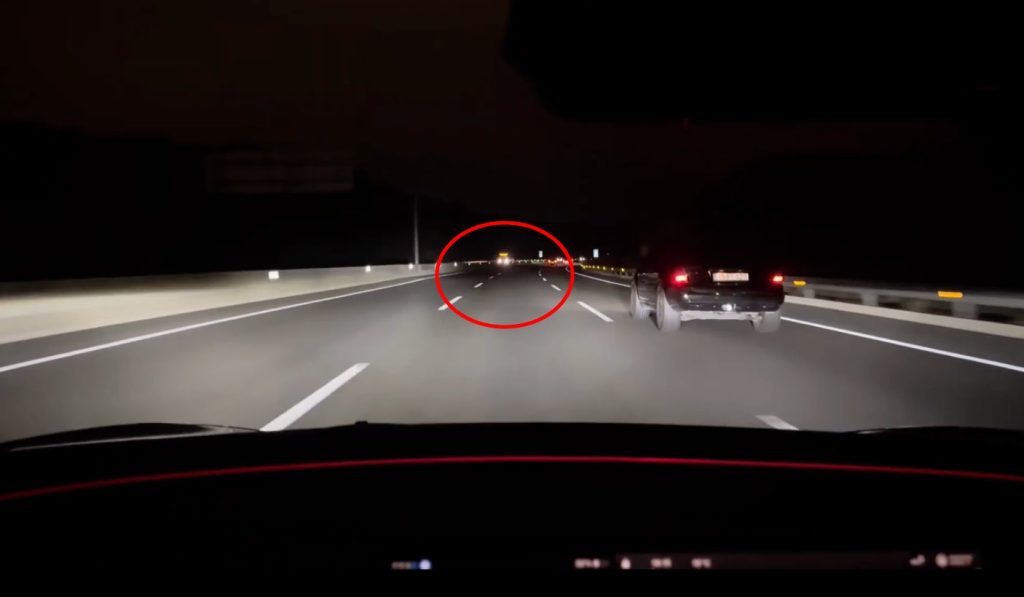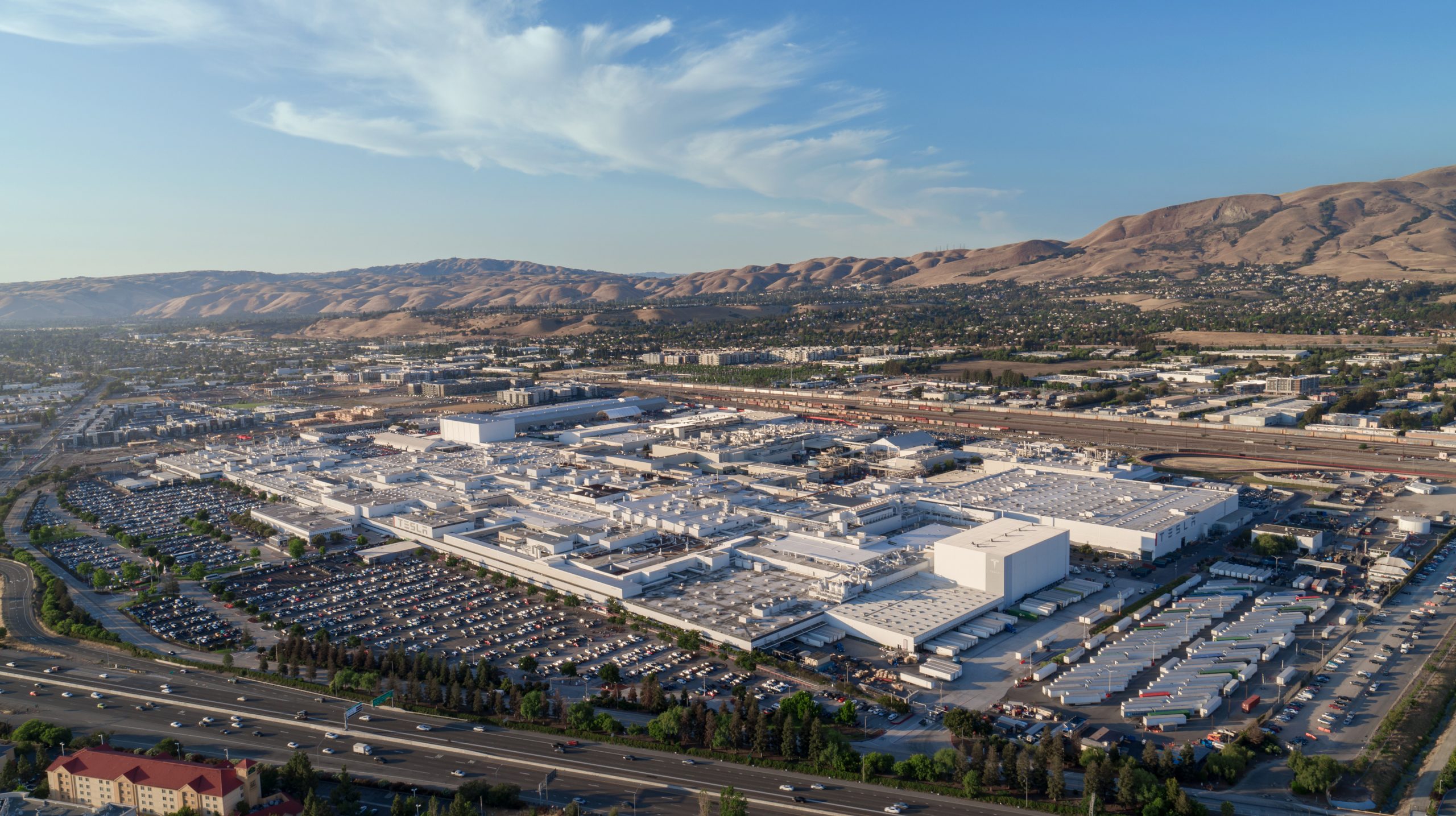
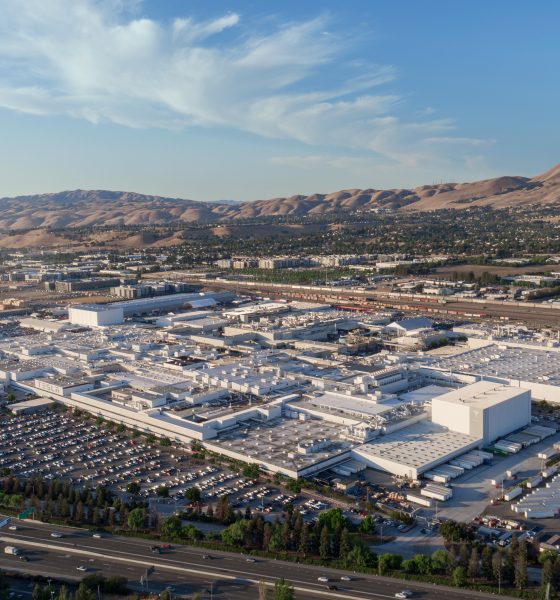
News
Tesla generated $44.4 million of economic activity for CA every day in 2021: IHS Markit
A recent post from Tesla has outlined a number of key insights about the electric vehicle maker’s footprint in California. While Tesla currently lists Gigafactory Texas as its headquarters, the Golden State will always be the place where the company grew and hit its momentum. And based on a report, Tesla has provided substantial economic activity for California over the past few years, generating $44.4 million of economic activity every day in 2021.
Tesla was founded in San Carlos, California, 20 years ago, and since then, the company has grown into the world’s undeniable leader in electric vehicles and the state’s largest manufacturing employer. As noted by Tesla in its recent post, its California footprint today is comprised of “Megapack production and vehicle castings in Lathrop, hardware and software engineering in Palo Alto, vehicle and battery manufacturing in Fremont, battery development and testing in San Diego and vehicle design in Hawthorne.”
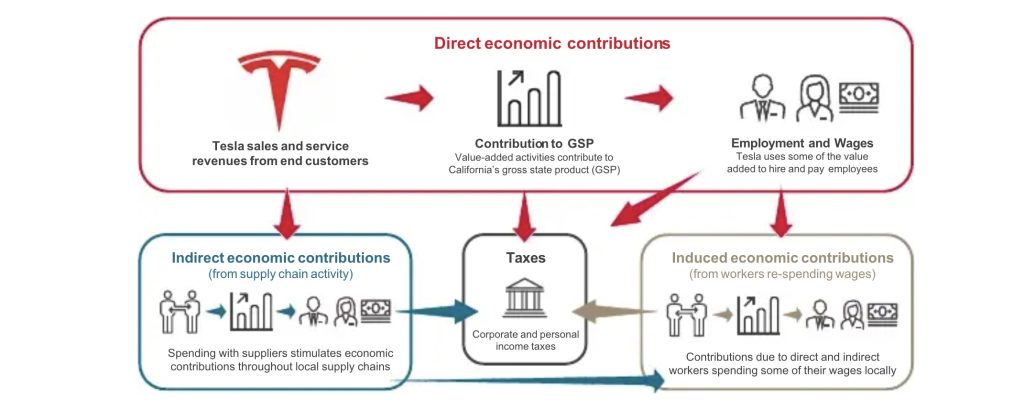
These facilities have had a large impact on California’s employment, wages, gross state product, and taxes. This became particularly notable over the past decade, with Tesla-supported jobs in the state increasing by 40% from 2018 to 2021. Tesla’s 2021 wages also exceeded the state average by 50%, a notable number considering the narrative painted against the company due to its non-unionized workforce.
As per a report from IHS Markit, Tesla’s contributions to the California economy can be summarized in the following section:
Supported an average of 59,440 jobs from 2018 to 2020, rising to 80,484 jobs in 2021
- In 2021, this represented 0.5% of California employment or 1 out of every 208 jobs
- For every 100 direct Tesla jobs, 50 more were supported in the supply chain and 68 by follow-on consumer activity
Stimulated economic activity (sales) of $16.6 billion in 2021 was 40% higher than the 2018 to 2020 average of $11.9 billion
- This was equivalent to generating $44.4 million of economic activity every day in 2021
- Tesla’s direct sales rose from $5.7 billion in 2018 to $7.4 billion in 2021
- Tesla directly spent over $1.6 billion with California suppliers in 2021, which triggered another $900 million in supply chain sales activity
Contributed $10.4 billion or 0.3% of California’s gross state product (GSP) in 2021
- This was 42% higher than Tesla’s 2018 to 2020 average GSP contribution of $7.2 billion.
On average, $1.0 million of Tesla’s revenue in California converts to $1.5 million in GSP
Stimulated an average annual wage of $128.6K in California during 2021
- This was 50% higher than the CA average annual wage of $85.7K
Approximately 30% of the economic contributions were stimulated by the local consumer spending of Tesla and its suppliers’ employees
Generated a total of $1.5 billion in California state & local taxes plus federal $2.5 billion in federal taxes from 2018 through 2021
Last year, Tesla’s economic contributions to California were still impressive, with the company growing its headcount to 47,000 employees in the state. That’s still a significant number, considering that California is no longer the state that hosts the electric vehicle maker’s headquarters. That being said, Tesla executives have noted in the past that despite Tesla’s expansion, the company would continue to grow in California, just as revealed in IHS Markit’s report.
IHS Markit’s report on Tesla’s impact on California’s economy from 2018 to 2021 can be viewed below.
Tesla California Economic Impact Final Report October 2022 by Simon Alvarez on Scribd
Don’t hesitate to contact us with news tips. Just send a message to simon@teslarati.com to give us a heads up.

News
Tesla to improve one of its best features, coding shows
According to the update, Tesla will work on improving the headlights when coming into contact with highly reflective objects, including road signs, traffic signs, and street lights. Additionally, pixel-level dimming will happen in two stages, whereas it currently performs with just one, meaning on or off.
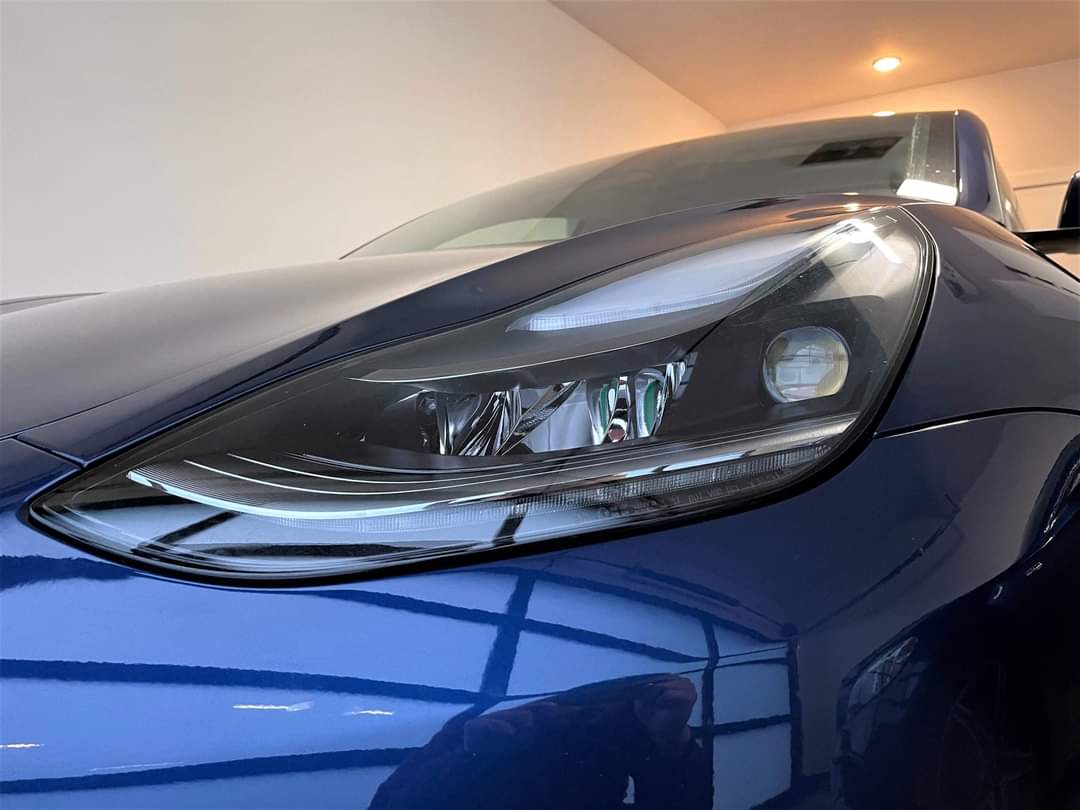
Tesla is looking to upgrade its Matrix Headlights, a unique and high-tech feature that is available on several of its vehicles. The headlights aim to maximize visibility for Tesla drivers while being considerate of oncoming traffic.
The Matrix Headlights Tesla offers utilize dimming of individual light pixels to ensure that visibility stays high for those behind the wheel, while also being considerate of other cars by decreasing the brightness in areas where other cars are traveling.
Here’s what they look like in action:
- Credit: u/ObjectiveScratch | Reddit
- Credit: u/ObjectiveScratch | Reddit
As you can see, the Matrix headlight system intentionally dims the area where oncoming cars would be impacted by high beams. This keeps visibility at a maximum for everyone on the road, including those who could be hit with bright lights in their eyes.
There are still a handful of complaints from owners, however, but Tesla appears to be looking to resolve these with the coming updates in a Software Version that is currently labeled 2026.2.xxx. The coding was spotted by X user BERKANT:
🚨 Tesla is quietly upgrading Matrix headlights.
Software https://t.co/pXEklQiXSq reveals a hidden feature:
matrix_two_stage_reflection_dip
This is a major step beyond current adaptive high beams.
What it means:
• The car detects highly reflective objects
Road signs,… pic.twitter.com/m5UpQJFA2n— BERKANT (@Tesla_NL_TR) February 24, 2026
According to the update, Tesla will work on improving the headlights when coming into contact with highly reflective objects, including road signs, traffic signs, and street lights. Additionally, pixel-level dimming will happen in two stages, whereas it currently performs with just one, meaning on or off.
Finally, the new system will prevent the high beams from glaring back at the driver. The system is made to dim when it recognizes oncoming cars, but not necessarily objects that could produce glaring issues back at the driver.
Tesla’s revolutionary Matrix headlights are coming to the U.S.
This upgrade is software-focused, so there will not need to be any physical changes or upgrades made to Tesla vehicles that utilize the Matrix headlights currently.
Elon Musk
xAI’s Grok approved for Pentagon classified systems: report
Under the agreement, Grok can be deployed in systems handling classified intelligence analysis, weapons development, and battlefield operations.

Elon Musk’s xAI has signed an agreement with the United States Department of Defense (DoD) to allow Grok to be used in classified military systems.
Previously, Anthropic’s Claude had been the only AI system approved for the most sensitive military work, but a dispute over usage safeguards has reportedly prompted the Pentagon to broaden its options, as noted in a report from Axios.
Under the agreement, Grok can be deployed in systems handling classified intelligence analysis, weapons development, and battlefield operations.
The publication reported that xAI agreed to the Pentagon’s requirement that its technology be usable for “all lawful purposes,” a standard Anthropic has reportedly resisted due to alleged ethical restrictions tied to mass surveillance and autonomous weapons use.
Defense Secretary Pete Hegseth is scheduled to meet with Anthropic CEO Dario Amodei in what sources expect to be a tense meeting, with the publication hinting that the Pentagon could designate Anthropic a “supply chain risk” if the company does not lift its safeguards.
Axios stated that replacing Claude fully might be technically challenging even if xAI or other alternative AI systems take its place. That being said, other AI systems are already in use by the DoD.
Grok already operates in the Pentagon’s unclassified systems alongside Google’s Gemini and OpenAI’s ChatGPT. Google is reportedly close to an agreement that will result in Gemini being used for classified use, while OpenAI’s progress toward classified deployment is described as slower but still feasible.
The publication noted that the Pentagon continues talks with several AI companies as it prepares for potential changes in classified AI sourcing.
Elon Musk
Elon Musk denies Starlink’s price cuts are due to Amazon Kuiper
“This has nothing to do with Kuiper, we’re just trying to make Starlink more affordable to a broader audience,” Musk wrote in a post on X.

Elon Musk has pushed back on claims that Starlink’s recent price reductions are tied to Amazon’s Kuiper project.
In a post on X, Musk responded directly to a report suggesting that Starlink was cutting prices and offering free hardware to partners ahead of a planned IPO and increased competition from Kuiper.
“This has nothing to do with Kuiper, we’re just trying to make Starlink more affordable to a broader audience,” Musk wrote in a post on X. “The lower the cost, the more Starlink can be used by people who don’t have much money, especially in the developing world.”
The speculation originated from a post summarizing a report from The Information, which ran with the headline “SpaceX’s Starlink Makes Land Grab as Amazon Threat Looms.” The report stated that SpaceX is aggressively cutting prices and giving free hardware to distribution partners, which was interpreted as a reaction to Amazon’s Kuiper’s upcoming rollout and possible IPO.
In a way, Musk’s comments could be quite accurate considering Starlink’s current scale. The constellation currently has more than 9,700 satellites in operation today, making it by far the largest satellite broadband network in operation. It has also managed to grow its user base to 10 million active customers across more than 150 countries worldwide.
Amazon’s Kuiper, by comparison, has launched approximately 211 satellites to date, as per data from SatelliteMap.Space, some of which were launched by SpaceX’s Falcon 9 rocket. Starlink surpassed that number in early January 2020, during the early buildout of its first-generation network.
Lower pricing also aligns with Starlink’s broader expansion strategy. SpaceX continues to deploy satellites at a rapid pace using Falcon 9, and future launches aboard Starship are expected to significantly accelerate the constellation’s growth. A larger network improves capacity and global coverage, which can support a broader customer base.
In that context, price reductions can be viewed as a way to match expanding supply with growing demand. Musk’s companies have historically used aggressive pricing strategies to drive adoption at scale, particularly when vertical integration allows costs to decline over time.
